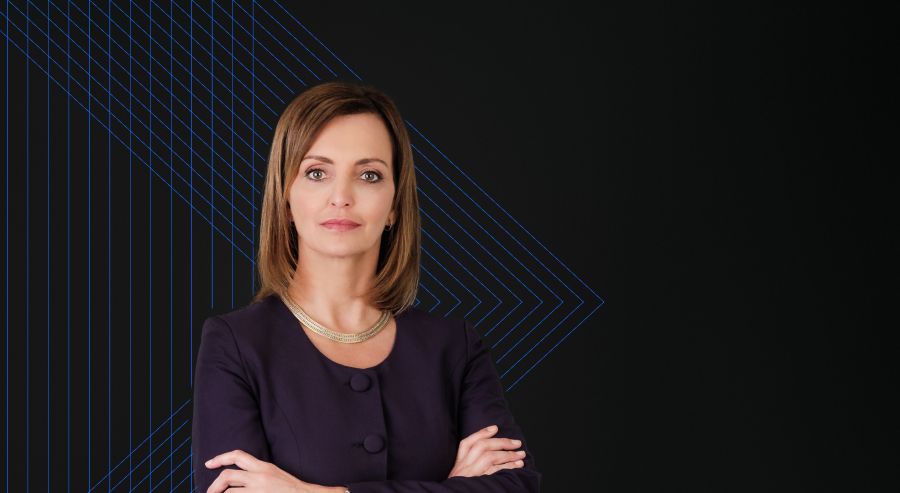
Women investors, look no further! Standard Bank’s Woman of the Year (2021) and one of Africa’s top female CEOs shares her investment advice, drawing on both personal experiences and professional expertise.
From juggling three jobs to pay for her university education to putting her career on hold to raise her children, Dr Leila Fourie made several significant investment decisions on her way to the top – investments that are still paying off.
Leila held several high-profile positions at Australia’s top financial institutions (the Commonwealth Bank of Australia, the Australian Payments Network), but in 2019 she returned to South Africa excited to take over the reins of Africa’s largest stock exchange. Being the CEO of the Johannesburg Stock Exchange allows her to work with the vibrant South Africans she loves while growing the country’s economy.
We chatted to her to learn what 25 years in the finance sector have taught her so far.
What was the first thing you saved up for and how did you save?
I come from humble beginnings and I had to pay for my university education myself, so during high school I held numerous casual jobs to save up for my tuition. In my final year of university, I had three different roles: I was a research assistant, waitress and gym instructor, and paid for university with the income I earned. (She went on to earn a doctorate after her master’s thesis in economics won an Economic Society of South Africa’s Founders’ Medal.)
What excited you about returning to South Africa to take on the role of JSE CEO?
It was a privilege to take up the role because it allowed me to contribute to the country of my birth. The exchange (JSE) plays a central role in South Africa’s economy: capital investments enable prosperity and development. The work that we do has a compounding effect on the growth of the economy.
And I was very excited about the opportunity to contribute on a much broader level than a single organisation. It also gave me the option to be in the country that I love and to spend time with South Africans who have such vibrancy, who are resilient, and who show positive energy. I love the pioneering and innovative energy of South Africans.
What was the best investment you ever made and when was this?
My best non-financial investment was to stay at home with my children for four-and-a-half years after they were born, and the return on that investment continues 30 years later. Financially, investing in my education created a platform for me to build a career to generate wealth over time.
Can you share a pivotal moment or decision in your investment journey that significantly impacted your financial trajectory?
When I paid off the mortgage on my home and got rid of that debt. It opened up an opportunity for me to save and use my disposable income to generate opportunities. I invested in the forex market while I was in Australia, which taught me about the dynamics of markets and the impact of global and local economies. For me, that was a very successful period of investment.
What advice would you give to women looking to build their investment portfolios?
- To identify a goal, and to adjust your risk profile according to your stage of life: higher risk when you are younger and lower risk as you get closer to retirement.
- It’s important to diversify your investment. Don’t put all your eggs in one basket.
- Invest for the long term and don’t be reactionary. Returns compound over time and you have to use a long line of vision in your investment horizon.
- Be conscious of transaction costs because these also compound over time.
I always rely on Warren Buffett’s quote: “Don’t invest what is left after spending but spend what is left after investing.”
Leila’s contribution to the world spans further than South Africa. She was recently appointed to the United Nations Compact Board by Secretary-General António Guterres. The board provides ongoing strategic and policy advice for the initiative, which guides businesses on their sustainability strategies.
The views and opinions shared are for informational purposes only. They are not intended to serve as investment advice and do not represent the views or opinions of Standard Bank. This information should be used as a starting point for generating investment ideas, and should not be relied upon as the sole basis for making investment decisions. The Standard Bank of South Africa Limited will not be responsible for the results of any investment decisions made based on the views provided.